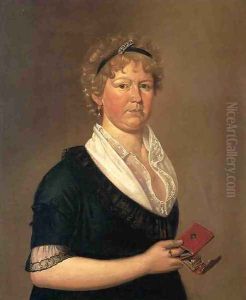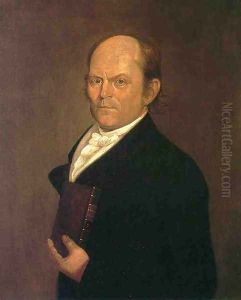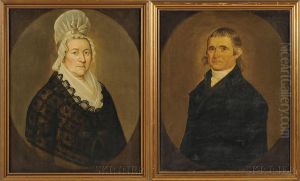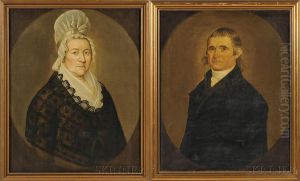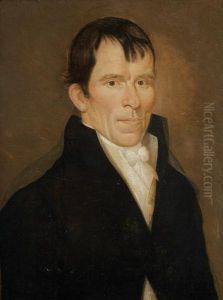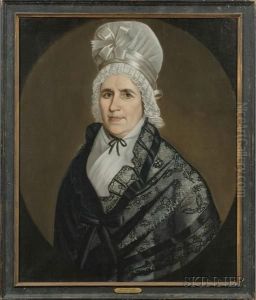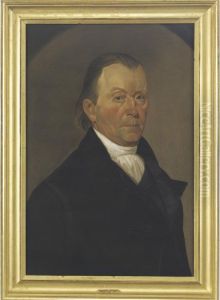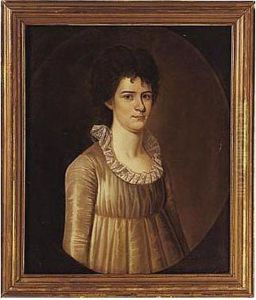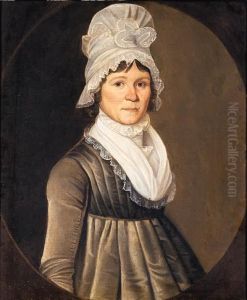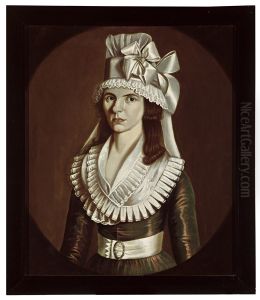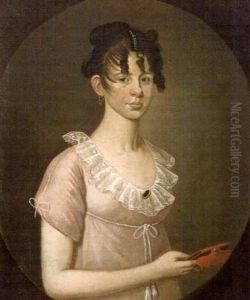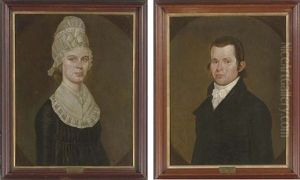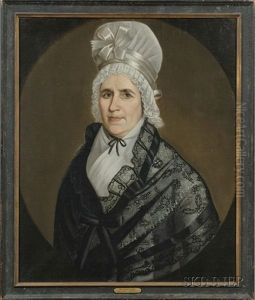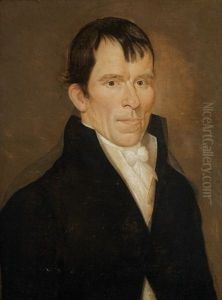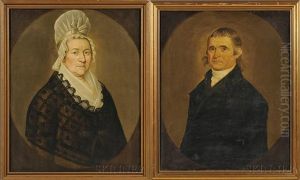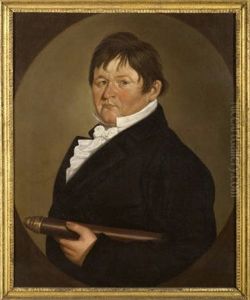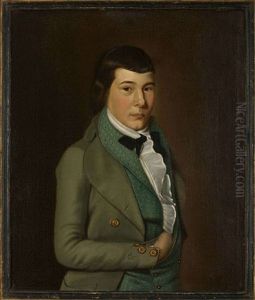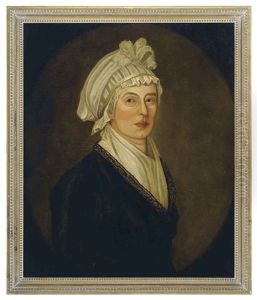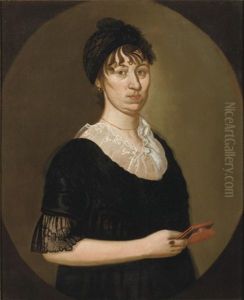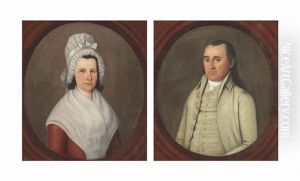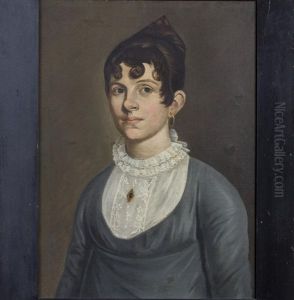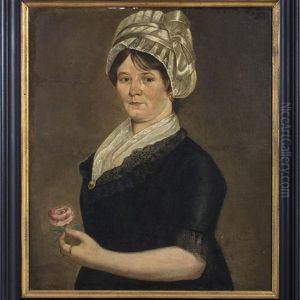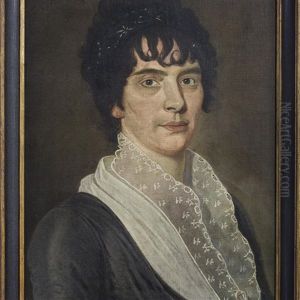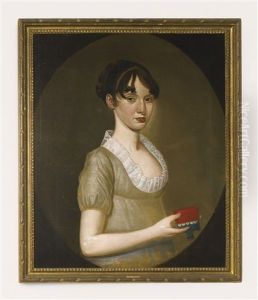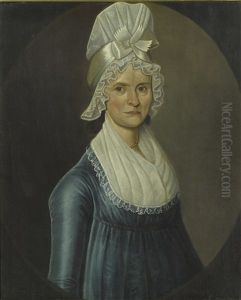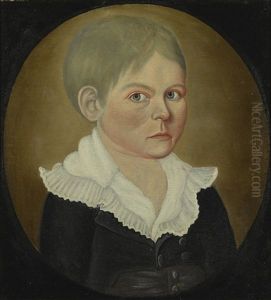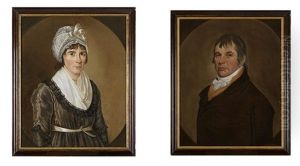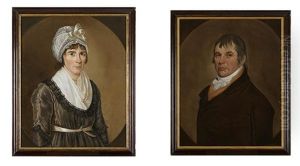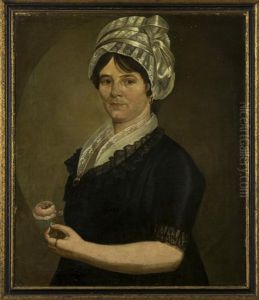William Jennys Paintings
William Jennys was an American itinerant portrait painter active in the late 18th and early 19th centuries. Born around 1774, little is known about his early life and training, but he is often associated with the broader tradition of itinerant painters who traveled from town to town in New England, offering their services to those who wished to have their portraits made.
Jennys worked primarily in small, rural communities and had a distinct style characterized by delicate treatment of his subjects' faces, detailed clothing, and the inclusion of personal attributes that reflected the status or interests of the individual sitters. His work is notable for its fine and meticulous brushwork and the use of light pastel colors. He often painted on small wooden panels, which was a common practice among itinerant artists of the time due to their ease of transport.
Despite the lack of comprehensive records, Jennys is believed to have been quite prolific, as a significant number of portraits attributed to him have been preserved. These portraits are valuable not only as works of art but also as historical documents that offer insights into American society and culture in the Federal period.
William Jennys' contribution to American folk art and portraiture was significant, as he helped to document the faces and fashions of his time. His work is represented in several museum collections and continues to be studied by art historians interested in American folk art and the itinerant artist tradition. He is believed to have died around 1859, but the exact date of his death, like much of his life story, remains somewhat obscure.
